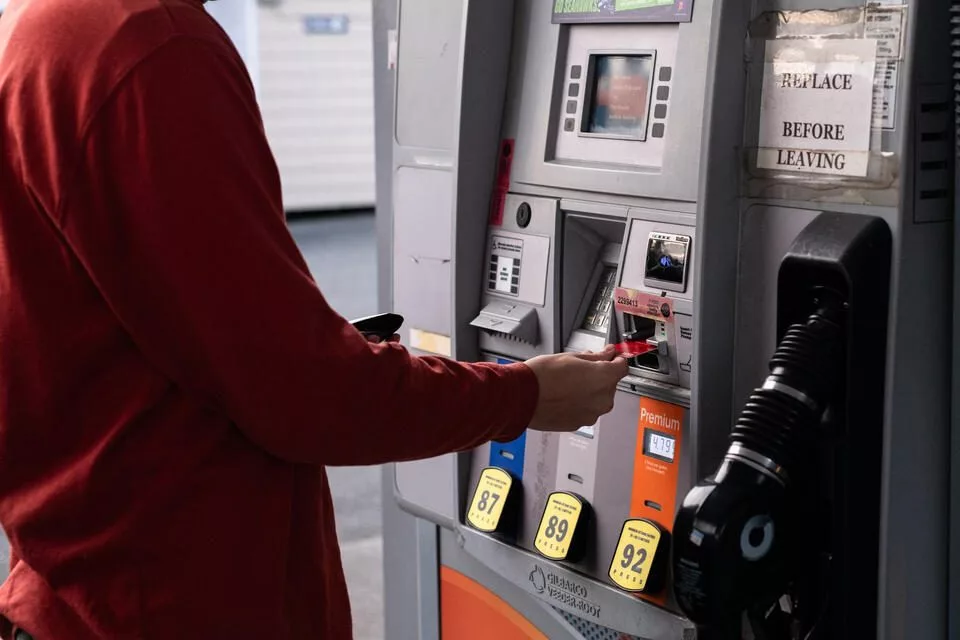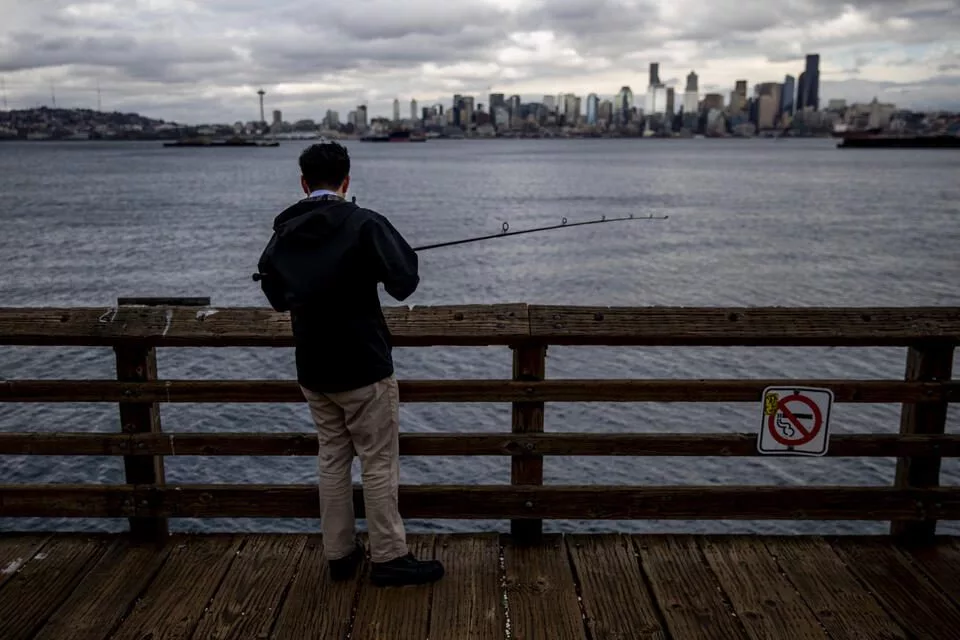The new budget would raise the price of gas, Discover Passes and more. Democrats say this is necessary, while Republicans say it will hurt residents.
OLYMPIA, WA – The costs of marriage licenses, gas, rental cars and outdoor recreational licenses are all expected to increase under the new state budget awaiting Gov. Bob Ferguson’s signature.
The final $78 billion, Legislature-approved operating budget relies heavily on taxes on wealthy businesses, the sale of expensive stocks and bonds and estate transfers.
But the state’s operating budget and the $15 billion transportation budget both include a host of other fees on smaller-ticket items that could go into effect in July. Lawmakers drafted both budgets with the expectation of significant funding shortfalls over the next six years.
Democrats say tax and fee increases are necessary to keep up with inflation and ensure Washington residents still have access to government services. Republicans say the increases will hurt only low- and middle-income Washingtonians.
The state collects taxes and fees to fund programming related to education, mental health support services, state parks and recreation management, road and transit projects and more.
The new fees’ implementation will depend on Ferguson’s signature: He has until mid-May to sign off on the budgets, or veto parts of them.
If the proposed fee increases go into effect, here’s where you might see them.
Gas prices
Drivers would start seeing a slight increase at the pump with a hike in the state gas tax in July.
The current state tax on gasoline is 49.4 cents per gallon. In two months, that would increase to 55.4 cents, then increase by 2% each year to keep up with inflation. Diesel fuel would see a 3-cent increase in July and another 3-cent increase the following year. It would then increase 2% each year starting in July 2028.
Vehicle registration
The registration filing fee for drivers, currently $4.50, would increase to $6. The title filing fee would increase from $5.50 to $6.50. Service fees, currently totaling $23, would be raised to $29 starting in July.
Passenger weight fees for vehicles weighing more than 4,000 pounds would increase starting in July. Trucks would also see an increase in weight fees.

ID cards
The fee for new driver’s licenses or state ID cards is also increasing slightly. Currently, the per-year fee is $9. That would increase to $10 starting in July and increase $1 every three years.
Rental cars
The tax on rental cars would increase from 5.9% to 11.9% starting in 2026. It would then decrease to 9.9% starting in 2027. Those taxes would also apply to peer-to-peer car rental services like Turo.
Storage units
Beginning in April 2026, operators of self-storage facilities would begin paying taxes on the rental or lease of a unit.
Currently these units are not taxed, but under the new budget, operators would pay a business and occupation tax at either 1.5% or 1.75%, depending on the cost of the transaction.
Outdoor recreation passes and licenses
Starting in October, Discover Passes, which are required at state parks, would increase from $30 to $45. Passes can be shared between two vehicles; families can purchase transferable passes for multiple cars for $50.
Seniors, disabled veterans, volunteers and foster families would still receive discounted passes under the law.
The cost of hunting and fishing licenses would increase by 38%. Expenses would range from $19.32 for a turkey to $117.30 for big game like deer or cougars.
New discounted rates for these licenses would be available for seniors.
Nicotine products
Beginning January 2026, nicotine products like Zyn pouches would be taxed similarly to other tobacco products, at 95% of the taxable sales price.
Marriage licenses
The state would impose an additional $100 fee on all marriage licenses. Currently, marriage licenses range from $36 to $72 per license.
The money raised from the new fee would go toward the Domestic Violence Co-Responder Account, which would be used to pay domestic violence victim advocates, who respond to domestic violence incidents alongside law enforcement and provide family support and care navigation for victims.
Liquor permits
Most liquor licenses and permits would increase by 50%. Currently, fees range from $75 to $2,000 depending on the type and size of a retail location.
“Tesla tax”
The sale of electric vehicle credits between auto companies would be subject to a new tax.
Under state law, new cars sold in Washington must meet certain electric or hybrid requirements in the next decade. But car companies who do not meet those requirements can instead purchase credits earned by electric vehicle companies, like Tesla.
Under the new law, a 2% tax would be added to the sale of those credits and a 10% tax would be added to banked credits.
Although the tax would apply to any electric vehicle credits in Washington, Tesla owns most of them in Washington and would face the brunt of the tax.
B&O tax
The biggest revenue drivers among the slew of new taxes are increases in the business and occupation tax, which most businesses must pay based on the value of their products, proceeds and income.
The changes to the tax include raising the base rate for wholesaling and manufacturing companies and imposing surcharges on big banks. All businesses earning more than $250 million annually would face an additional temporary 0.5% surcharge.
Capital gains
Currently, the state imposes a 7% tax on the exchange of gains worth over $270,000. The new budget creates a tiered system: Profits from the annual sales of stocks and bonds worth more than $1 million would be taxed an additional 2.9% each year.
Estate tax
There would also be increases in the estate tax, which is levied on the transfer of property at the time of someone’s death. Smaller estates worth under $3 million would be excluded from this tax, but the rates gradually increase for larger estates. They’d go up to 35% for estates worth $9 million or more.
Correction May 6, 2025: An earlier version of this article included a new tax on cigarettes that ultimately did not pass the Legislature. The article has been updated.
Visit cascadepbs.org/donate to support nonprofit, freely distributed, local journalism.
